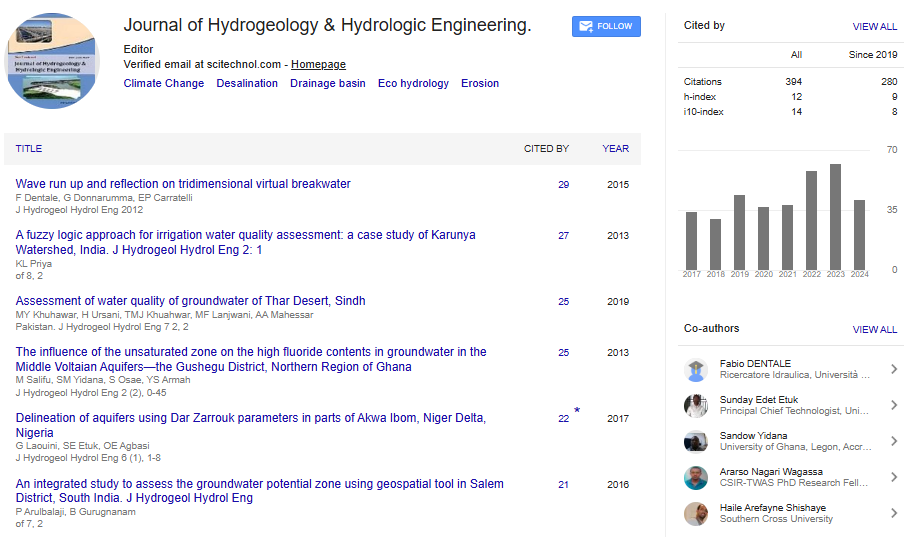Paradigm shift needed to achieve post-2015 water supply targets: Ethiopian case study
Geremew Sahilu Gebrie
Ethiopian Institute of Water Resources, Ethiopia
: J Hydrogeol Hydrol Eng
Abstract
The objective of this paper is to introduce the need for a paradigm shift in the water supply and sanitation sector for achievement of post-2015 sustainable development goal targets. Primary data and secondary data were collected from over 100 and 35968 schemes respectively and composite programming and system dynamics tools were used in the research. Based on the research findings the paradigm shifts needed in the sector are: shift from spot or communal sources to the ones with distribution in order to supply the required quantity, changing the quantity to a minimum of 50 l/c/d and shifting from tariffs based on operation and maintenance only for rural water supply to including cost recovery. The need for paradigm shift shows consumption level, tariff and income affect the sustainability of rural water supply schemes. These paradigm shifts in the sector are necessary but for success, there should be a parallel economic transformation to increase rural households’ income.
 Spanish
Spanish  Chinese
Chinese  Russian
Russian  German
German  French
French  Japanese
Japanese  Portuguese
Portuguese  Hindi
Hindi 
